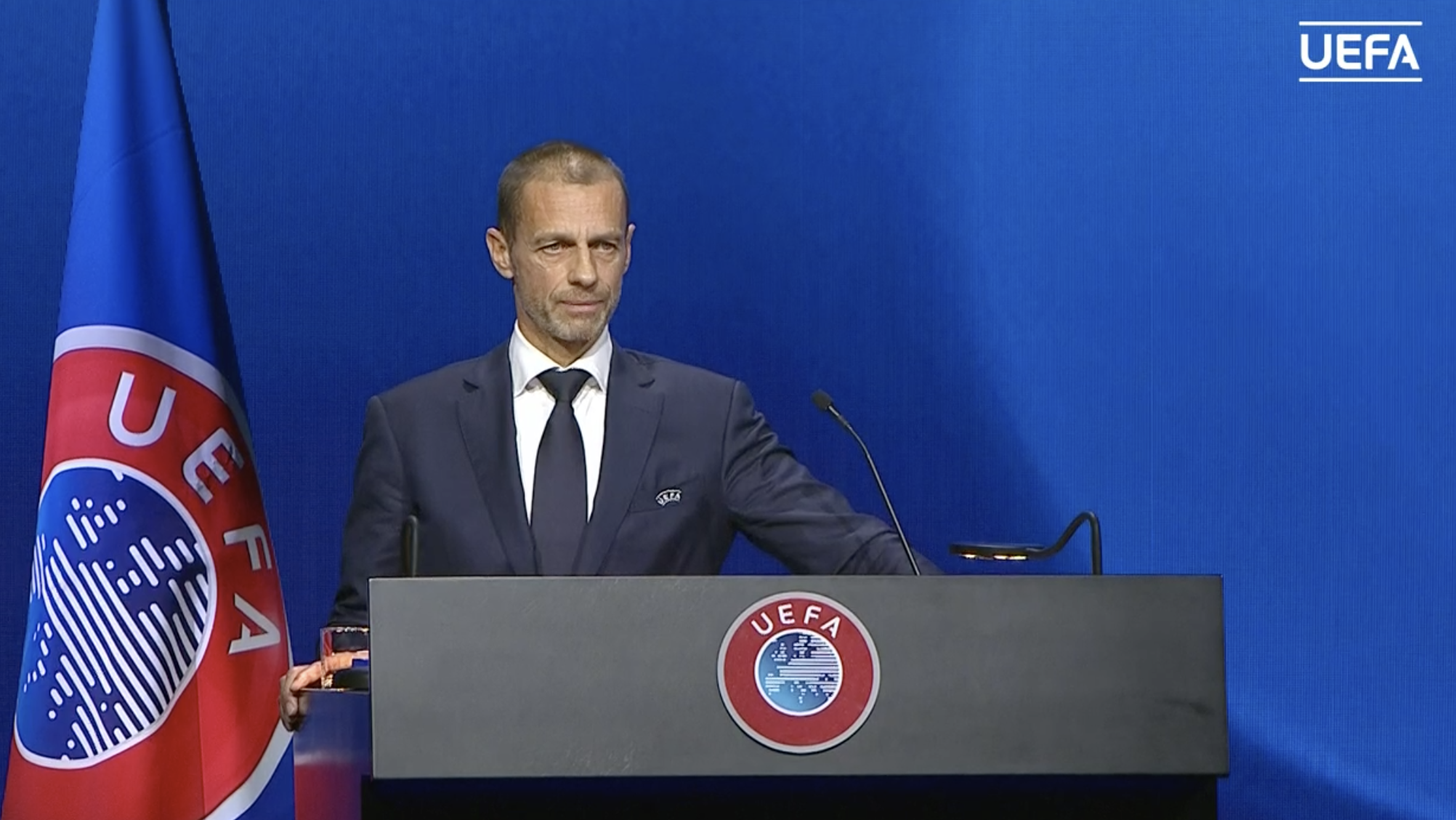By Paul Nicholson
December 10 – UEFA will hold its Executive Committee next Thursday (December 16) via video conference and with an agenda that is noticeable absent of the two biggest issues that have faced the European federation over the past eight months – the biennial World Cup and the thwarted plans for a European Super League (ESL).
On December 20 FIFA will hold their own members’ meeting to discuss the biennial World Cup – the latest in what is becoming a long line of disastrous proposals promoted by FIFA president Gianni Infantino.
UEFA’s position on the biennial World Cup is unequivocally along the lines of ‘over my dead body’, something that Infantino appears to want to create with his multiple proposals that would eat into the calendar and revenues UEFA generates to fund its own game.
Similarly the ESL proposal, while still potentially a legal possibility with a court ruling still pending, now looks to be working its way to the periphery of reality, particularly with EU parliamentarian reports slamming the proposals and the EU backing the European sports model as a fundamental principle for the organisation of sport.
Putting them as agenda points is probably pointless, such is the unified position within UEFA.
Both items will likely come up under ‘other business’ and UEFA’s resolve should not be doubted. Any FIFA push towards a vote on a biennial World Cup would guarantee a mass walk out of Europeans, South Americans and probably many other nations who rely on Europe for the development of their national team players. FIFA’s grandees have somewhat belatedly recognised bit not before they turned what was intended – at least on one socio-political-cum-performance level – to be a levelling up of world football competitiveness, into a proposal that could break the institution apart. Europeans and South Americans would argue that Infantino has already done this, such are the divisions and political inequalities he and his inner sanctum have promoted.
UEFA will instead focus their exco meeting on other issues with main agenda items being listed as Football and Sustainability Strategy 2030; Update on the development of financial fair play regulations; UEFA Grassroots Awards; Futsal competitions – appointment of hosts; UEFA Medical Regulations (edition 2022).
Political recognition
It has been a busy year of politics for UEFA’s president Aleksander Ceferin (pictured) who has been recognised by the influential Politico.eu website as one of the 28 most influential people in Europe. The website says the list is compiled of the “most important and influential people inciting debate and driving decisions in Europe”.
Calling him ‘The Goalkeeper’, Politico describes Čeferin at the centre of a battle over the future of world football saying: “Having faced down some of the biggest clubs in Europe over what he called a ‘disgraceful, self-serving’ plan to create an exclusive and anti-competitive Super League, the 54-year-old is now taking on FIFA, pushing back against the global football body’s proposal to hold the World Cup every two years.”
Infantino doesn’t make the list. He might make one for Africa or the Gulf states though.
Contact the writer of this story at moc.l1746779261labto1746779261ofdlr1746779261owedi1746779261sni@n1746779261osloh1746779261cin.l1746779261uap1746779261

